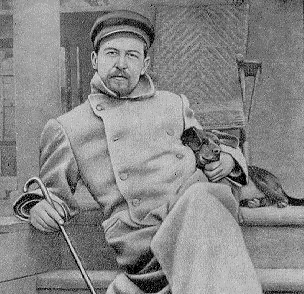

|
... This course is the most sutable to reach the ideal of my web-dreams, when instructions do not need instructors. When you can learn everything by yourself!
 Drama is a term generally used to refer to a literary form involving parts written for actors to perform. Dramas can be performed in a variety of media: live performance, film, or television. "Closet dramas" are works written in the same form as plays (with dialogue, scenes, and "stage directions"), but meant to be read rather than staged; examples include the plays of Seneca, Manfred by George Gordon Byron, and Prometheus Unbound by Percy Bysshe Shelley. [ wikipedia ]
Drama is a term generally used to refer to a literary form involving parts written for actors to perform. Dramas can be performed in a variety of media: live performance, film, or television. "Closet dramas" are works written in the same form as plays (with dialogue, scenes, and "stage directions"), but meant to be read rather than staged; examples include the plays of Seneca, Manfred by George Gordon Byron, and Prometheus Unbound by Percy Bysshe Shelley. [ wikipedia ]
updates 2004
|
The term dramatic literature implies a contradiction in that literature originally meant something written and drama meant something performed. Most of the problems, and much of the interest, in the study of dramatic literature stem from this contradiction.

2005 Fall -- THR215 Dramatic Literature :Miss Julie and Other Plays (Oxford World's Classics) by August Strindberg This edition embraces Strindberg's crucial transition from Naturalism to Modernism, from his two finest achievements as a psychological realist, The Father and Miss Julie, to the three plays in which he redefined the possibilities of European drama following his return to the theatre in 1898, A Dream Play, The Ghost Sonata, and The Dance of Death. Michael Robinson's highly performable translations are based on the authoritative texts of the new edition of Strindberg's collected works in Sweden and include the Preface to Miss Julie, Strindberg's manifesto of theatrical naturalism. The difference between drama and theatrePart 3. Chekhov (Cherry Orchsrd) and high modernism
Part 5. Writing (new)
Main script.vtheatre.net & 2005 THR215 * Antiquity I * Modern Times II * High Modern (Realism) III * Postmodern (Absurdism) IV * V *
[ calendar ]Drama is a Greek word meaning `action', drawn from the Greek verb dran, `to do'. Greek tragedians applied it to the plays they wrote; Euripides is portrayed in the Acharnians of Aristophanes crying out, "Oimoi ta dramata!" (Oh no what's become of my plays).

Most people tend to equate drama with theater. However, there are subtle but important differences between the two. Theater is a collective art. Theater requires many people — actors, writers, designers, technicians, etc. — all working together in a period of rehearsal and creative exploration towards a common goal. Whatever the benefits experienced by participants along the way, theater is evaluated by how well the performance communicates to its audience. Drama is an individual pursuit undertaken within a social context. Defined by human action and interaction, drama is primarily concerned with what happens to participants while they are engaged in activity. It is an extension of children’s play and, like that play, is often free and spontaneous. Drama has no fixed end product, no right or wrong way of doing. As a result, its effects, unlike theater performances, are often unique and unrepeatable. Above all, dramatic experience is a very human activity— one that reaffirms “I exist. My life has meaning.”(Bernie Warren with Tim Dunne, Drama Games. Captus Press, 1989, p.2) Drama (or dramatization) could also be a prose or verse composition telling a story which shows life or character through conflict and emotions. It is usually performed by actors and actresses in a theatrical setting, but can also refer to pre-recorded television programs or opera.
In sum, "drama" is a generic term for creative play and imaginative taking on of a role, whereas, theatre "requires" an audience and sometimes the technicalities of performance for an audience.
With theatre we are concerned with individuals, with drama we are concerned with the individuality of the individuals.
Doctor Faustus and Other Plays (Oxford World's Classics) Christopher Marlowe (1564-1593), a man of extreme passions and a playwright of immense talent, is the most important of Shakespeare's contemporaries. This edition offers his five major plays, which show the radicalism and vitality of his writing in the few years before his violent death.
 Writing assignments: 200 words post after reading each play. Midterm (Outline, 1st Draft, Final), Final (and/or the Scene -- the same three stages or rewrites), tests.
Writing assignments: 200 words post after reading each play. Midterm (Outline, 1st Draft, Final), Final (and/or the Scene -- the same three stages or rewrites), tests.
